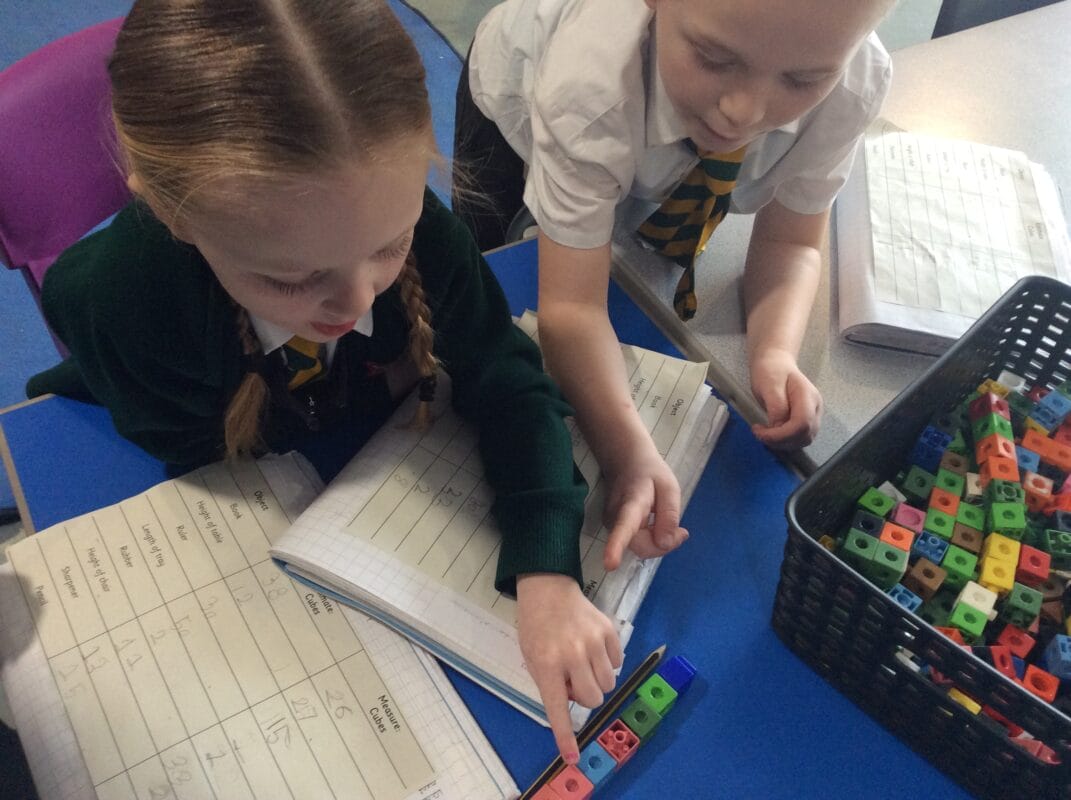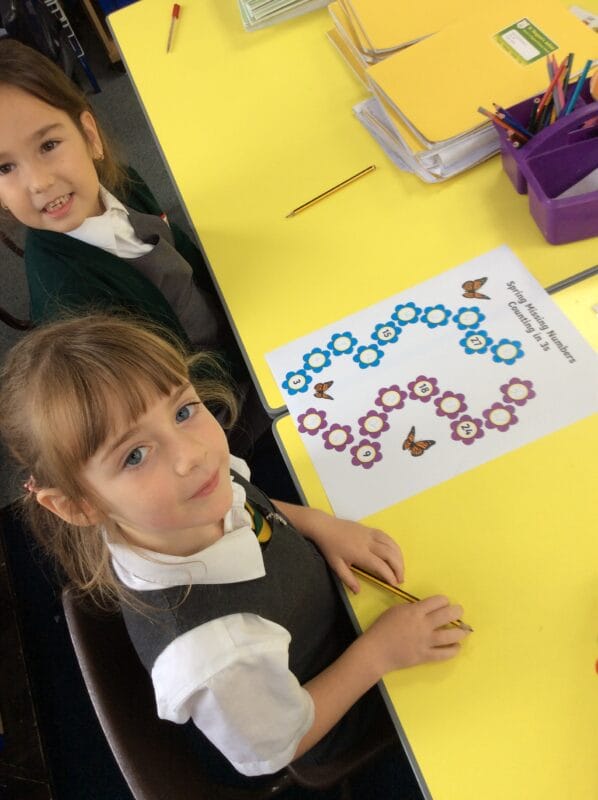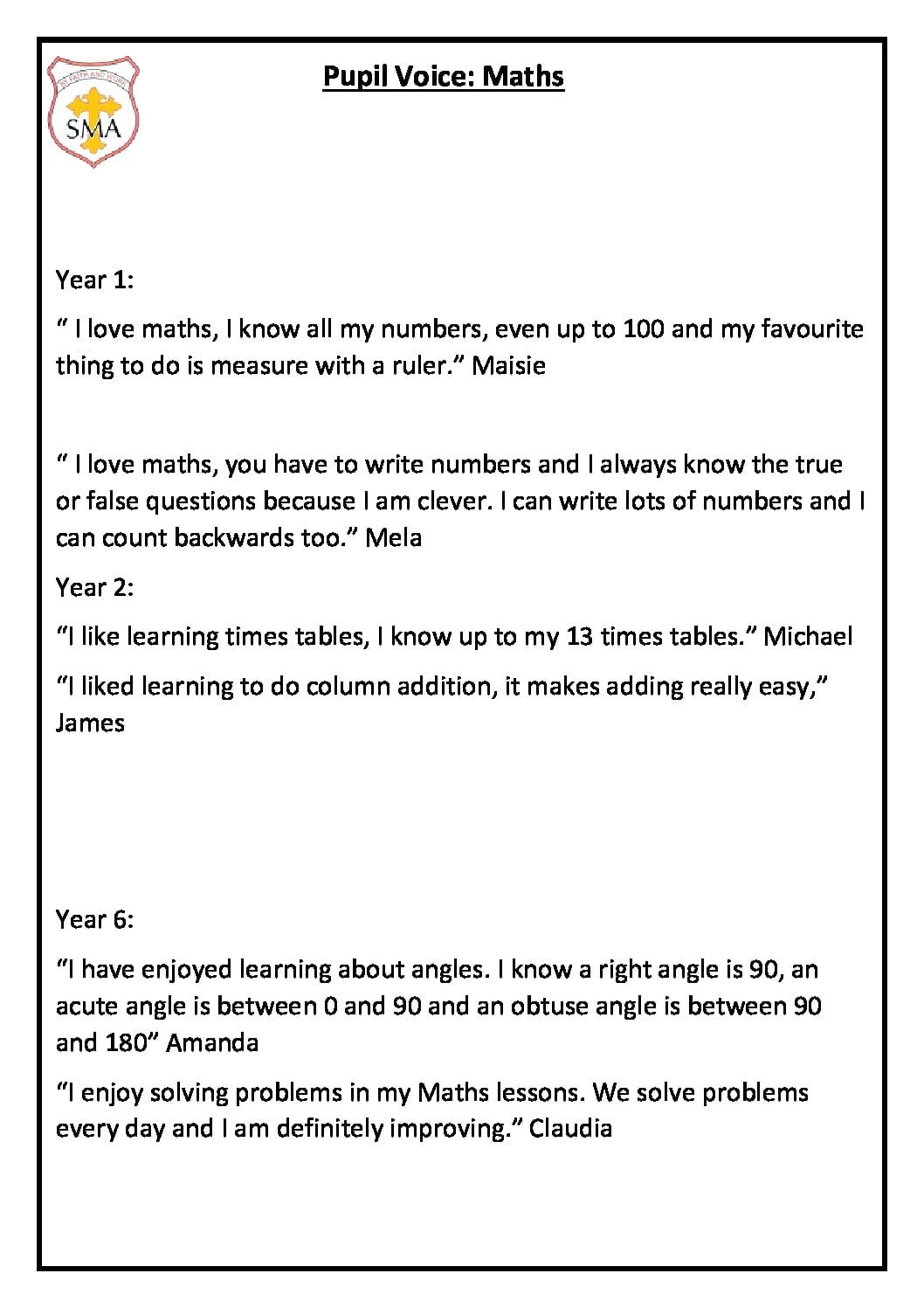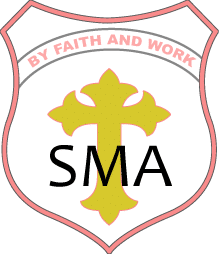Maths
Intent
- To develop enthusiastic, competent mathematicians who ALL have a positive mind-set and outlook towards this subject. We want children to know that Maths is for EVERYONE and that they CAN do it.
- Become fluent in the fundamentals of mathematics.
- Develop conceptual understanding and the ability to recall and apply knowledge rapidly.
- Fully develop independent learners with inquisitive minds who have secure mathematical foundations and an interest in self-improvement.
- To reason and problem solve by applying mathematics to a variety of increasingly complex problems.
- To be able to make rich connections between topics to develop their fluency, mathematically reasoning and competence in solving increasingly difficult problems.
- To build upon children’s knowledge and understanding from EYFS-Y6.
- To develop resilience that enables all children to reason and problem solve with increased confidence.
- To encourage ‘mistake friendly’ classrooms where children see mistakes as learning tools – there is an emphasis placed upon developing the power to ‘think’ rather than just ‘do’.
- For children to understand how Maths is essential to everyday life and how developing their skills can enhance their ability to find their own way in the real world.
- For children to be able to apply their mathematical knowledge to other subjects, such as Science, PE and DT.
By adopting a Mastery approach, it is also intended that all children will maximise their academic achievement and leave St Margaret’s Church of England Primary School with an appreciation and enthusiasm for Maths, resulting in a lifelong positive relationship with number and other areas of the subject. Consequently, when faced with a mathematical concept in the real world (from telling someone the time, counting their change to becoming engineers or designers), they will do so with confidence, competence and genuine enjoyment.


Implementation
- To ensure full topic coverage, Years 1-6 follow the ‘White Rose Hub’ small steps approach. This is a whole-school primary Maths curriculum that creates continuity and progression in the teaching of mathematics in a mastery way.
- Teachers are given the flexibility to use a variety of resources to deliver their lesson objective for their class.
- Daily Maths lessons include a mix fluency, reasoning and problem solving activities.
- A mastery approach has been adopted so all children have the opportunity to achieve their full potential. Scaffolding with adults or resources is used to support children.
- Concrete manipulatives and pictorial representations are used to support conceptual understanding and to make links across topics.
- KS2 start each morning with an arithmetic session known as ‘4 a day’. 4 a day covers four different elements of the curriculum and may involve misconceptions from previous lessons, pre teaching material or concepts learnt weeks before (encouraging a distance from learning approach). Each session also includes a number of the day task and a problem of the day.
- Children complete a pre and post learning task on each topic to ensure progress is being made through their maths journey. QLA’s are used to highlight any areas of concern which are then addressed in ‘Whilst You Waits (WYW)’ and their daily arithmetic sessions (4 a day).
- Children are assessed on a termly basis using the NFER papers. QLA’s are addressed in future activities: Maths lssons/4 a day/ WYW.
- EYFS and KS1 follow the Mastering Number scheme to develop their conceptual understanding and rapid recall. KS1 deliver this in addition to their Maths lessons. EYFS use this as their main teaching sessions to ensure their Early Learning Goals are met.
- As well as being taught within the curriculum, Times Tables are encouraged as part of the daily routine (e.g. whilst doing the register). Children use Times Table Rockstars and BBC Supermovers to enhance their rapid recall and Year 3&4 children complete the 3 minute speed challenge at least three times a week.
- Booster sessions take place weekly to enhance the confidence and learning of the children who teachers feel would benefit from this further tuition.
Impact
- Most children reach end of year expectations.
- Children’s progress is tracked on a weekly basis using a tracker.
- Well planned sequences of learning support children to develop and refine their maths skills.
- Children are able to independently apply their knowledge to a range of increasingly complex problems.
- Children are reasoning with increased confidence and accuracy.


Useful Links for Adults
http://www.familymathstoolkit.org.uk/
https://www.nnchallenge.org.uk/home/index.html
Year 4 Multiplication Tables Check
https://www.gov.uk/government/publications/multiplication-tables-check-information-for-parents
Useful Links for Children
http://www.crickweb.co.uk/ks2numeracy.html
http://nrich.maths.org/primary-upper
Useful Websites:
https://www.nationalnumeracy.org.uk/
http://www.familymathstoolkit.org.uk/
Multiplication Tables Support
http://www.multiplication.com/games/all-games
http://www.teachingtables.co.uk/
Homework Activities (You will need your child’s log in details)
Mathematical Challenges
https://nrich.maths.org/primary-lower
https://nrich.maths.org/primary-upper
Games
https://www.topmarks.co.uk/maths-games/3-5-years/counting
https://www.topmarks.co.uk/maths-games/5-7-years/counting
https://www.topmarks.co.uk/maths-games/7-11-years/ordering-and-sequencing-numbers
https://www.topmarks.co.uk/maths-games/hit-the-button
Financial Education


